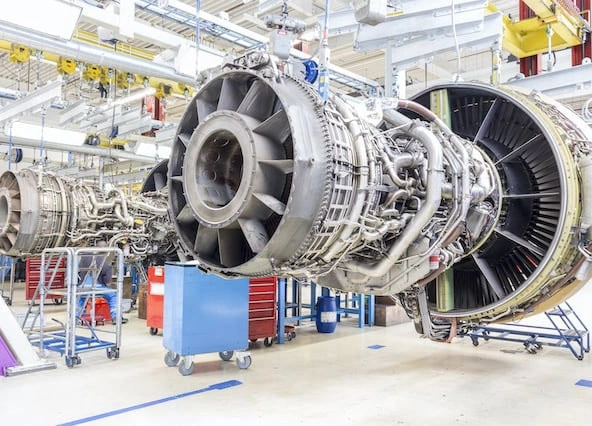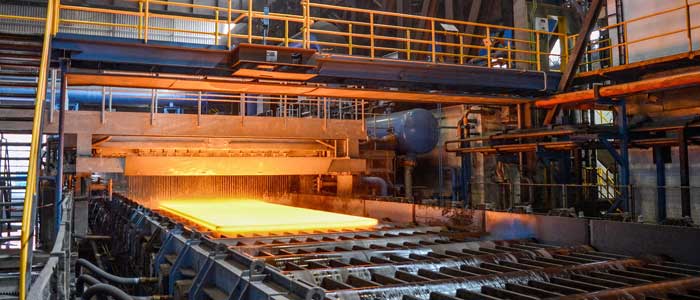In the world of metallurgy, high-temperature alloys are game-changers. These materials can withstand extreme heat while maintaining their structural integrity, making them ideal for a variety of demanding applications. From aerospace to power generation, high-temperature alloys play a pivotal role in modern industry. In this article, we’ll explore the latest advancements in high-temperature alloy fabrication and why these innovations are crucial for future technologies.
High-temperature alloys, often referred to as high-performance alloys, are specially engineered materials designed to perform under extreme conditions. Their primary characteristic is the ability to resist high temperatures without losing strength or corroding. This makes them invaluable in industries that require materials to operate in harsh environments.
What Makes High-Temperature Alloys Unique?
High-temperature alloys are typically composed of a mixture of metals such as nickel, cobalt, and iron. These base metals are combined with elements like chromium, molybdenum, and titanium to enhance their heat-resistant properties. The precise composition of these alloys is tailored to meet specific performance requirements, making customization a key aspect of their fabrication.
The Role of Custom High-Temp Alloys
Custom high-temp alloys are essential for applications where standard materials fall short. Manufacturers of heat-resistant alloys work closely with their clients to develop solutions that meet unique demands. This customization ensures that the material can withstand the specific temperatures, stresses, and environmental conditions it will face.
Why Customization Matters
Customization in alloy fabrication is not just about mixing different metals. It’s about understanding the specific needs of an application and engineering a material that can perform optimally. This involves precise control over the alloy’s chemical composition, microstructure, and manufacturing process.
Innovations in High-Temperature Metal Fabrication
The field of high-temperature metal fabrication is constantly evolving. Recent advancements have focused on improving the efficiency, performance, and sustainability of these materials.
Advanced Manufacturing Techniques
One of the most significant advancements in alloy fabrication is the development of new manufacturing techniques. Technologies like additive manufacturing (3D printing) are revolutionizing the way high-temperature alloys are produced. These techniques allow for greater precision and flexibility, enabling the creation of complex shapes and structures that were previously impossible.
Enhanced Alloy Compositions
Researchers are continually experimenting with new alloy compositions to push the boundaries of what high-temperature alloys can achieve. By tweaking the elements in an alloy, scientists can enhance properties like strength, ductility, and resistance to oxidation. These improvements open up new possibilities for high-performance applications.
The Importance of a Reliable Alloy Fabricator
Choosing the right high-temperature alloy fabricator is critical for the success of any project. A reputable fabricator not only provides high-quality materials but also offers expertise and support throughout the development process.
Key Considerations When Selecting a Fabricator
When selecting an alloy fabricator, consider their experience, capabilities, and track record. A fabricator with a proven history of delivering reliable, custom solutions is invaluable. Additionally, look for a manufacturer that invests in the latest technology and research, as this indicates a commitment to innovation and quality.
Applications of High-Performance Alloys
High-performance alloys are indispensable in numerous industries. Their ability to withstand extreme temperatures and stresses makes them ideal for critical applications.
Aerospace and Defense
In the aerospace and defense sectors, high-temperature alloys are used in engine components, turbine blades, and exhaust systems. These materials ensure that aircraft and military equipment can operate efficiently and safely in challenging conditions.
Power Generation
Power plants rely on high-performance alloys to improve efficiency and reduce emissions. Components like gas turbines and heat exchangers benefit from the superior heat resistance and strength of these materials, allowing power generation facilities to operate at higher temperatures and pressures.
Automotive Industry
The automotive industry also benefits from advancements in high-temperature alloys. These materials are used in exhaust systems, turbochargers, and other components that are exposed to high heat. By using high-performance alloys, manufacturers can improve vehicle performance and fuel efficiency.
Future Directions in High-Temp Alloy Fabrication
The future of high-temperature alloy fabrication looks promising, with ongoing research focused on developing even more advanced materials.
Sustainable Alloy Solutions
Sustainability is becoming a key consideration in alloy fabrication. Researchers are exploring ways to create alloys that are not only high-performing but also environmentally friendly. This includes developing materials that require less energy to produce and are easier to recycle.
Integration of Smart Technologies
The integration of smart technologies into alloy fabrication processes is another exciting development. By using sensors and data analytics, manufacturers can monitor and optimize the performance of alloys in real-time, leading to more efficient and reliable materials.
Conclusion
High-temperature alloys are at the forefront of technological innovation, enabling advancements across various industries. As the demand for these materials continues to grow, so does the need for cutting-edge fabrication techniques and custom solutions. By staying informed about the latest trends and choosing the right alloy fabricator, businesses can ensure they are equipped with the best materials to meet their high-temperature challenges.










